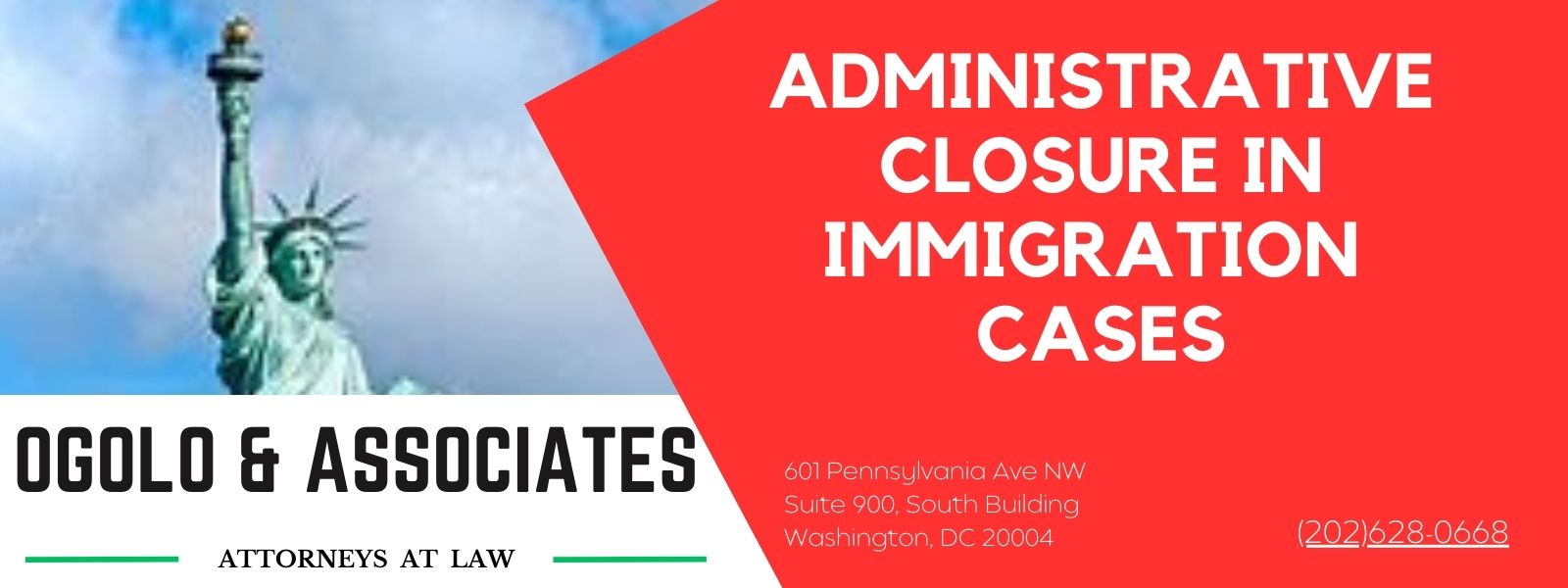“Administrative closure” was generally employed by Immigration Judges and the Board of Immigration Appeals to temporary remove a case from active calendar. The closure may be temporary, may last for many years in some cases, the case may remained closed for ever, unless either party requests a re-calendar. This practice was employed nationwide my immigration judges and the Board of immigration Appeals until the Trump Administration decided to end it. This attempt to end the practice has been challenged nationwide and is presently available only in areas covered by the United States Fourth and Seventh Circuit Courts of Appeal. The primary consideration for an immigration judge in deciding whether to administratively close or re-calendar proceedings is whether the party opposing administrative closure has provided a persuasive reason for the case to proceed and be resolved on the merits. And in deciding whether to grant the request for Administrative Closure, the Immigration Judge or the Board of Immigration Appeals consider the following factors:
-
the reason for the request for Administrative Closure;
-
the basis for any opposition to administrative closure;
-
the likelihood the respondent will succeed on any petition, application, or other action he or she is pursuing outside of removal proceedings;
-
the anticipated duration of the closure;
-
the responsibility of either party, if any, in contributing to any current or anticipated delay; and
-
the ultimate outcome of removal proceedings (for example, termination of the proceedings or entry of a removal order) when the case is re-calendared before the Immigration Judge or the appeal is reinstated before the Board.
POSSIBLE REASONS TO SEEK ADMINISTRATIVE CLOSURE:
-
To await adjudication of a Petition for Alien Relative (Form I-130)
-
To apply for a T visa (Form I-914)
-
To Apply for a U visa (Form I-918),
-
To apply for a Special Immigrant Juvenile Status (Form I-360)
-
To Apply for Adjustment of status as a VAWA self-petitioner, or
-
To apply for Temporary Protected Status (Form I-821).
-
To pursue a direct appeal of a criminal conviction, or to pursue post-conviction relief relevant to maintaining/obtaining lawful immigration status
-
To pursue a family court order required for obtaining Special Immigrant Juvenile Status
-
To seek a provisional waiver of unlawful presence (Form I-601A) before departing the United States for consular processing
-
To apply for Deferred Action for Childhood Arrivals, either as a renewal or as a new initial application (Form I-821d)
-
To ensure that the cases of parents and children are decided together, where the parent and child have been placed in separate proceedings, and
-
On account of issues with mental health competency
WHAT HAPPENS DURING ADMINISTRATIVE CLOSURE:
-
Either side may seek to re-calendar the case at any point
-
The non-citizen should try to get his or her status regularized as soon as possible while the case is administratively closed
-
If the alien has an on-going criminal case or appeal, he or she should endeavor to resolve that case as soon as possible
-
The alien must ensure that the lawyer has their current address, telephone and access to their relatives
-
It is important that the alien and their lawyer respond timely to any motion to re-calendar by the government
REASONS TO REQUEST RE-CALENDAR
Since the Trump administration moved to block Immigration Judges and the Board of Immigration Appeals from issuing Administrative Closure, the government has been filing motions to re-calendar most of the closed cases. When the government seeks to re-calendar, they are looking to resolve the case on the merits. In most cases, they are looking to have the alien deported. For example, if the alien applied for political asylum and it was denied and the cases ended up closed administratively, the Immigration judge will enforce the prior order of deportation. It is unlikely that the immigration judge will revisit the application for political asylum.

